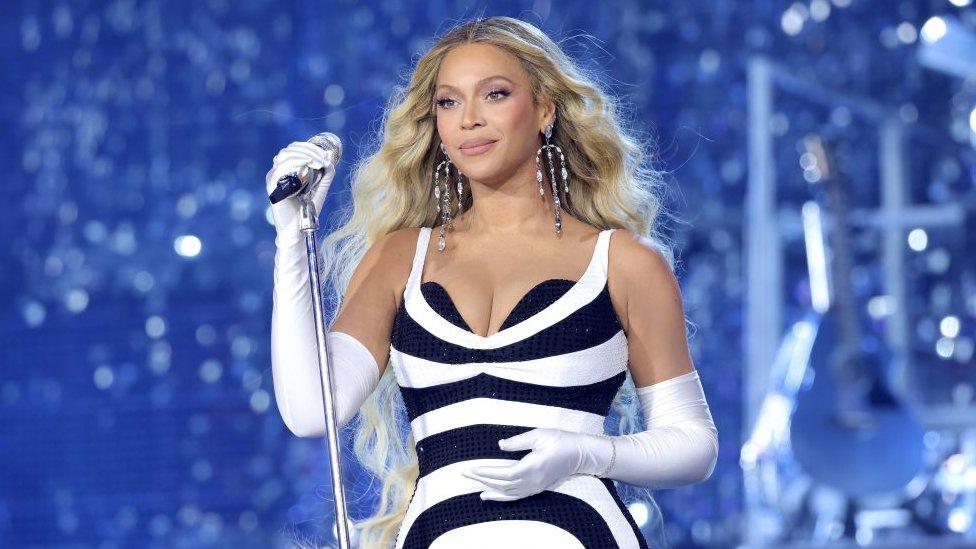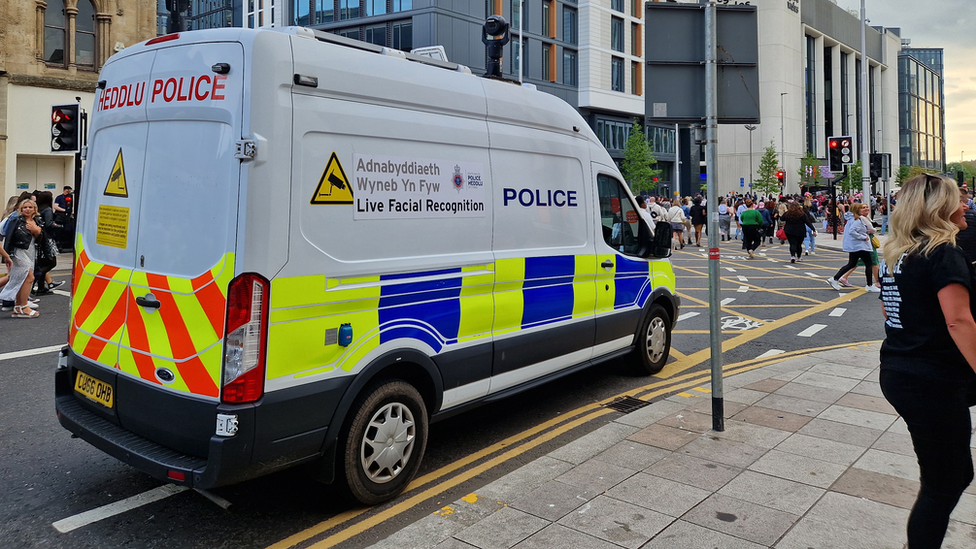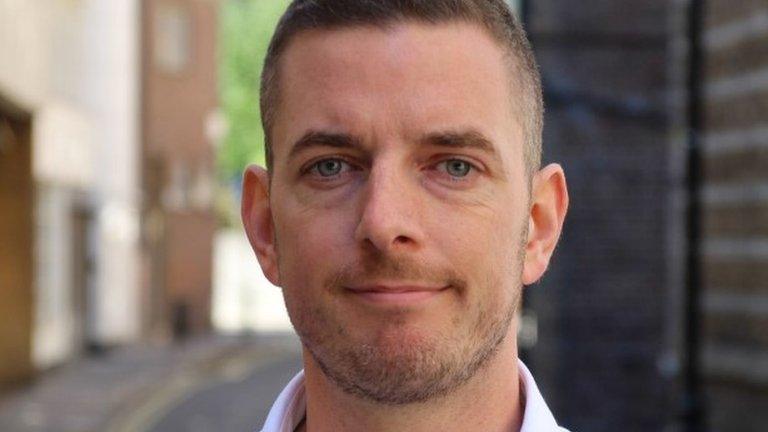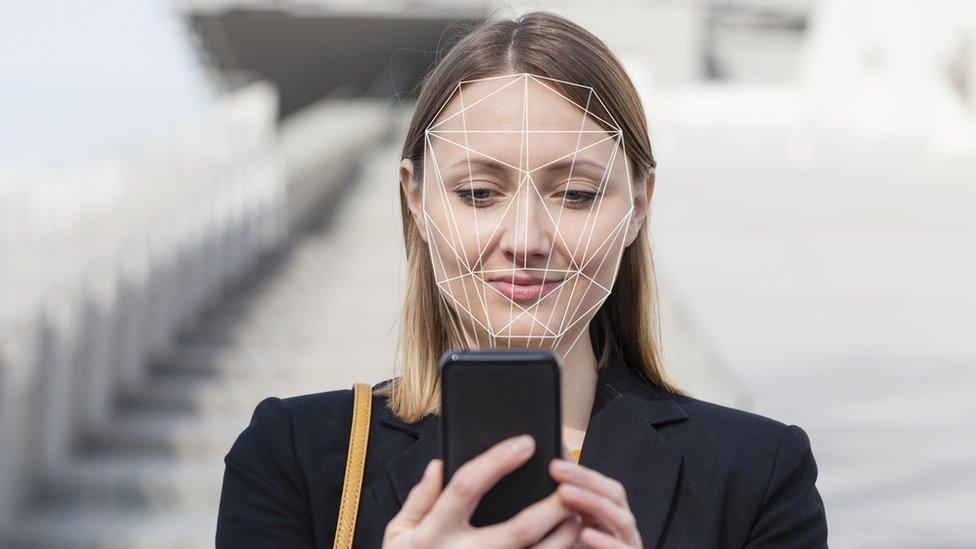Beyoncé's Cardiff gig crowd was scanned for paedophiles
- Published

The tech was rolled out because "very large numbers of young girls" would be attending the Beyoncé gig, according to Alun Michael
Facial recognition was used on crowds attending a Beyoncé concert in Cardiff to scan for paedophiles and terrorists.
South Wales Police and Crime Commissioner Alun Michael said searching for potential terrorists at such events had become normal since the 2017 Manchester Arena bombing.
He said paedophiles were also targeted as "there would be very large numbers of young girls attending that concert".
Mr Michael described using such cameras as "entirely sensible".
Appearing before MPs on the Welsh Affairs Committee, Mr Michael defended the use of the artificial intelligence (AI) technology outside the concert.
He was one of four of Wales' police and crime commissioners giving evidence in Westminster as part of an inquiry looking into how forces tackle crime.
A live facial recognition camera works by comparing faces with a "watch list" generated by police. The CCTV footage is recorded and kept for up to 31 days.
The use of the cameras has been criticised by human rights campaigners.
Katy Watts, a lawyer for the human rights group Liberty, previously said the technology "entrenches patterns of discrimination in policing" and "violates" the privacy of thousands.
But Mr Michael said he did not believe the technology was a problem.
"There's been a lot of misunderstanding thinking that images are captured and kept - they're not," he said.
"The only image that is retained is of an individual who's identified as being one of the people you're looking for."

The facial recognition van was on the streets of Cardiff ahead of the concert
He said the issue of governance was important.
"When there is a live facial recognition deployment I am informed in advance and told what the watchlist is.
"It's an operational decision which I am, in live time, able to review and check."
Mr Michael said the Beyoncé concert on 17 May was an example of how this worked in practice.
"The view beforehand was that a watchlist should consist of two sets of individuals," he told MPs.
"People known to be involved in extremism and terrorism in the light of the Manchester arena bombing - and secondly of paedophiles, because there would be very large numbers of young girls attending that concert."
"That was announced in advance and reported to me, it wasn't secretive," he added.
"It seemed to me entirely sensible."
Mr Michael also said he felt the general approach taken by South Wales Police when using the tool was the right one.
Related topics
- Published11 August 2020

- Published8 April 2023

- Published17 May 2023
